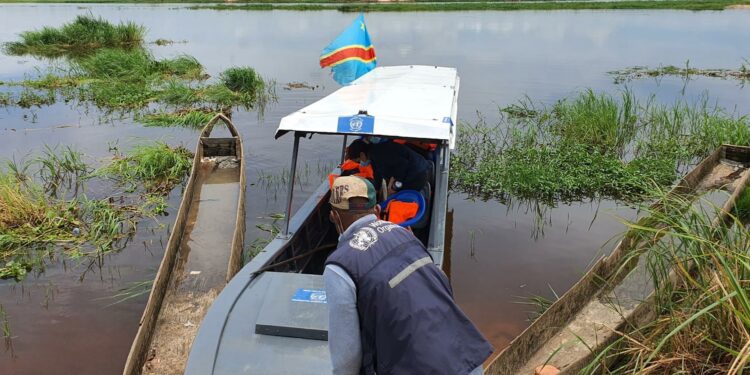The Democratic Republic of the Congo (DRC) is stepping up efforts to improve vaccination coverage nationwide, with a strong commitment to combating preventable diseases such as polio, measles, and yellow fever. To achieve this goal, the Ministry of Public Health has received significant logistical support from the World Health Organization (WHO), including speedboats, motorcycles, and other essential equipment to facilitate access to remote communities along the Congo River.
This collaboration has enabled the delivery of 79 outboard motors, two speedboats, 14 motorcycles, and other supplies valued at $750,000. With this support, the Congolese government has strengthened its vaccination campaigns across 89 health zones in nine provinces. “These boats and vehicles will allow health workers to quickly reach children and communities that have long been cut off from essential services,” said Boureima Hama Sambo, WHO Representative in the DRC. The government’s commitment to protecting public health is reflected in the implementation of mobile vaccination strategies that reach even the most isolated areas of the country.
In Kenya, HIV infections are prevented with a ring
The complex river network formed by the Congo River and its numerous tributaries creates a vast expanse of isolated islands and remote settlements, particularly in provinces like Équateur, Mongala, Tanganyika, and Tshopo. Thanks to the determination of the government and the support received, significant progress is expected in reducing recurring outbreaks of diseases such as polio, which in 2024 resulted in 25 confirmed cases of circulating poliovirus, and measles, with over 102,500 suspected cases and 2,200 deaths. The fight against meningitis also remains a priority, with 5,837 suspected cases and 465 deaths reported last year.
Despite progress in combating vaccine-preventable diseases, the DRC continues to face the challenge of containing a major outbreak of mpox. Between January 1 and March 2, 2025, the country recorded 2,415 confirmed cases, with 1,080 occurring in the last six weeks. The resurgence of mpox has been declared a Public Health Emergency of International Concern (PHEIC) by the WHO, as the virus is circulating in at least ten provinces, driven by sustained human-to-human transmission, particularly in the capital, Kinshasa.
The DRC government is actively working to contain the virus despite the complex situation of violence in the eastern part of the country, which has disrupted healthcare services. In February, the virus was detected for the first time in Lomami province, expanding its geographic reach. Additionally, travel-related cases have been reported in Belgium, France, Germany, the United Kingdom, and the United States. South Africa has also reported its first cluster of mpox cases linked to the same strain circulating in the DRC.










